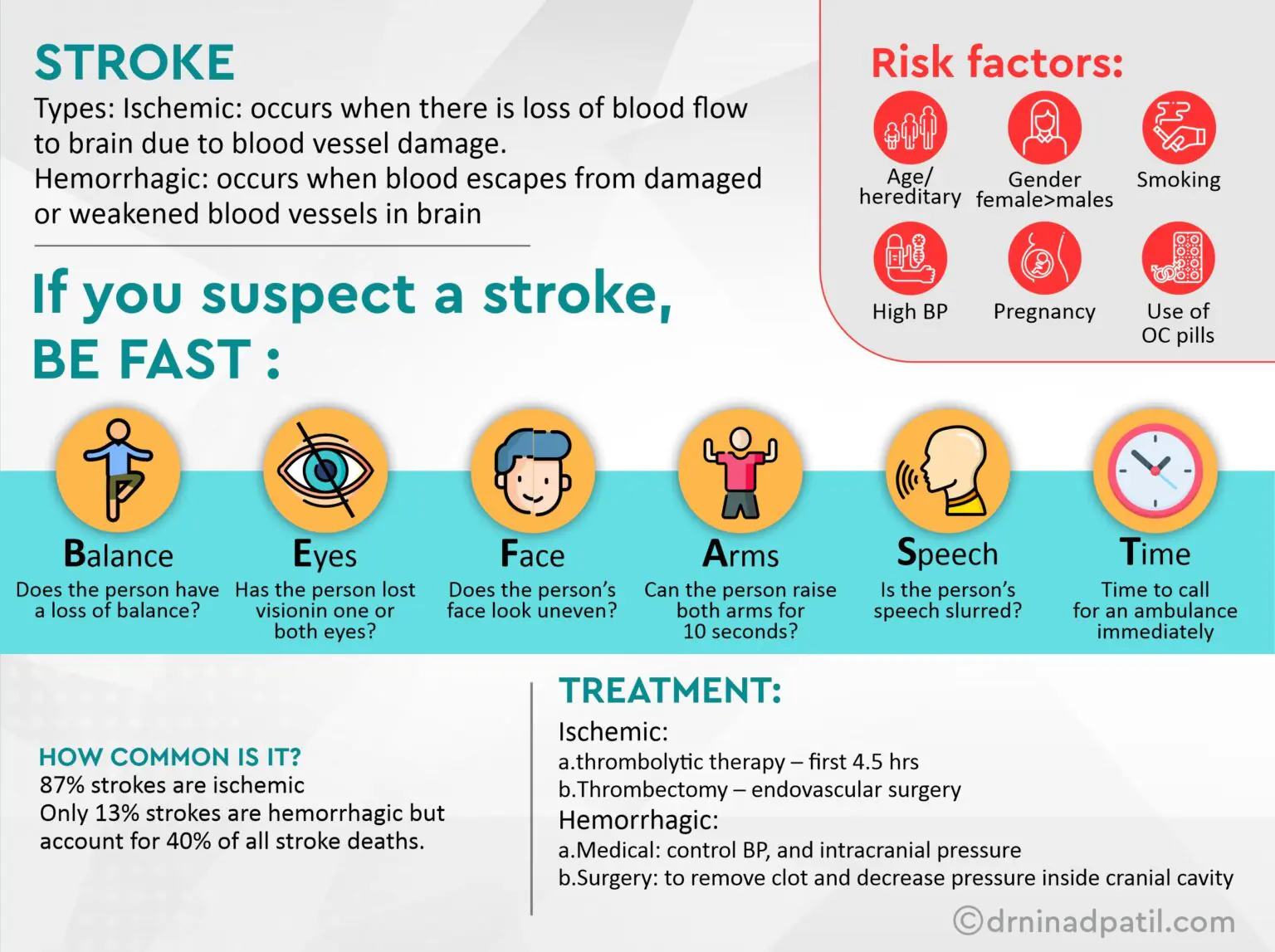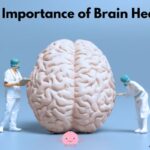
Expert Brain Stroke Treatment in Pune
A stroke happens when blood can’t reach a part of your brain. This cuts off oxygen and important nutrients from your brain cells, just like when other parts of your body don’t get enough blood. these brain cells start to die in minutes. A stroke is a very serious situation. Getting help right away is important because the sooner a doctor can see you, the less damage the stroke might do.
Here we discuss the different types of brain stroke, risk factors, symptoms, treatment, the best stroke treatment in Pune, and the expertise of Dr. Ninad Patil.
Types:
1. Ischemic: occurs when there is loss of blood flow to brain due to blood vessel damage.
2. Hemorrhagic: occurs when blood escapes from damaged or weakened blood vessels in brain
Risk factors :
- Age & Heredity: Stroke risk increases with age, and having a family history raises your chances.
- Gender: While less common, women are slightly more susceptible to stroke than men, especially after menopause.
- High Blood Pressure: Uncontrolled high blood pressure is a major risk factor.
- Pregnancy: Pregnancy complications such as pre-eclampsia can increase the risk of stroke.
- Smoking: Smoking damages blood vessels and increases the risk of stroke.
- Birth control pills: Oral contraceptives may slightly increase the risk of stroke, especially in women with other risk factors such as high blood pressure or migraines.
Symptoms Of Brain Stroke :
1. Balance: If you suspect a stroke, check for a sudden loss of balance.
2. Eyes: Do you have vision loss in one or both eyes? This could be blurred vision or complete loss of vision.
3. Face: Look for facial asymmetry. Is one side of the face drooping or appearing uneven?
4. Arms: Ask the person to raise both arms for 10 seconds. If one arm falls or they can’t raise both arms evenly, it could be a sign of a stroke.
5. Speech: Check for slurred or garbled speech. Difficulty speaking
Causes Of Stroke :
- High blood pressure
- High cholesterol
- Diabetes
- Obesity
- Smoking
- Inactivity
- Family history of stroke
How Common Is It?
87% of strokes are ischemic
Only 13% of strokes are hemorrhagic but account for 40% of all stroke deaths.
Brain Stroke Treatment:
Ischemic stroke:
Thrombolytic therapy (clot-busting drugs): Administered within 4.5 hours of stroke onset to dissolve blood clots and restore blood flow to the brain.
Thrombectomy (endovascular surgery): A minimally invasive procedure to remove clots using a catheter inserted through an artery. Ideally done within 24 hours of the stroke.
Hemorrhagic stroke:
Medical management: focuses on controlling blood pressure and reducing intracranial pressure to prevent further bleeding.
Surgery: In severe cases, surgery may be needed to remove the clot and relieve pressure in the brain.
Dr. Ninad Patil is known for his expertise in Stroke Treatment In Pune, With a commitment to providing compassionate care and utilizing the latest advances in Stroke management, he ensures that patients receive optimal treatment based on their specific needs.
When it comes to Stroke Treatment, time is of the utmost importance. The primary goal is to restore blood flow to the brain as quickly as possible to prevent further damage. This is usually done with clot-busting drugs, such as tissue plasminogen activator (tPA), or endovascular procedures to remove the clot or repair the blood vessel. Stroke specialists play a crucial role in this process. Their expertise can significantly improve the patient’s outcome.




